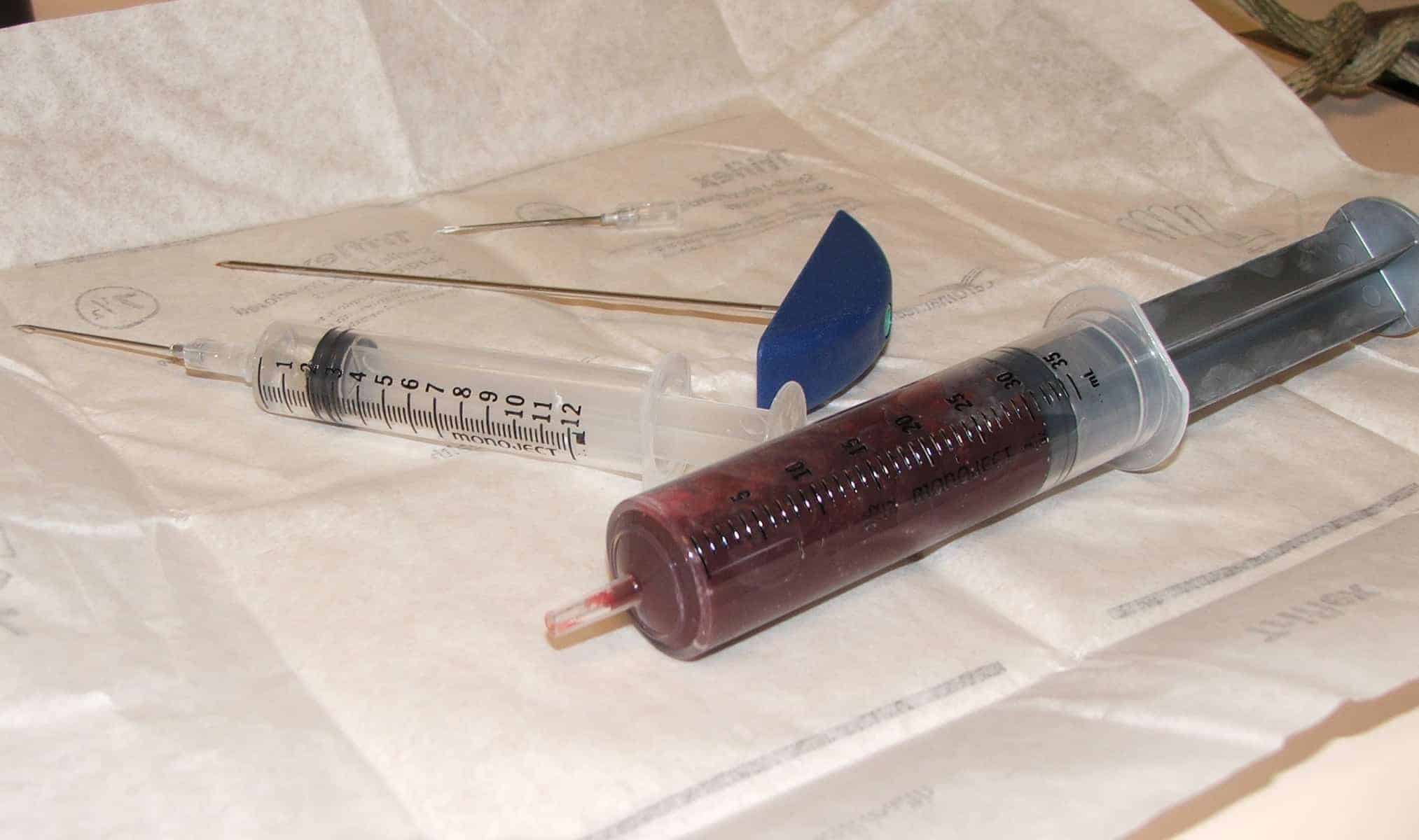Lack of Cross-Matching Stem Cells Fundamental to Failure

Unlike autologous stem cells–those collected from and used in the same patient–allogeneic stem cell therapy involves harvesting cells from a donor and administering them to an unrelated recipient. Potential benefits of allogeneic stem cells include off-the-shelf availability, reduced cost, and better-quality donors.
“The current stem cell dogma assumes allogeneic and autologous stem cells can be used interchangeably based on the assumption they are all ‘immune-privileged,’” said Ashlee Watts, DVM, Dipl. ACVS, equine orthopedic surgeon and director of Texas A&M University’s Equine Orthopedics and Regenerative Medicine Lab, in College Station. “This means that the horse’s immune system will not recognize stem cells as foreign, regardless of the donor.”
She added, “We have noticed over the years, however, that stem cell therapy seemed less effective when using allogeneic cells.”
The effect of immune recognition is like that of organ transplantation in people – without appropriate cross-matching, the immune system attacks the transplanted organ (or stem cells), causing it to fail.
In an eloquent series of experiments, Watts and colleagues demonstrated that the recipient horse’s immune system can indeed recognize allogeneic stem cells and stimulate an immune reaction, particularly with repeated doses.
In their study, 35 horses received either matched or unmatched mesenchymal stromal (stem) cells (MSCs). For control, horses received either autologous stem cells or saline. All included horses were tested for their major histocompatibility complex (MHC) type to determine whether the donor and recipient horses “matched.” This is the same testing performed for tissue matching in organ transplantation for humans.
The team injected one fetlock (metacarpophalangeal) joint of each recipient horse with one of the four treatments on Day 0 and again on Day 29 of the study. They collected joint fluid and blood samples throughout the 112-day study period and analyzed them for evidence of inflammation and antibody development against the donor horse.
Watts explained they selected this model because of the equine joint’s exquisite sensitivity to inflammation.
As Watts anticipated, nonmatched allogeneic stem cells were not immune-privileged and did in fact incite an immune response. Specifically, horses that received unmatched allogeneic stem cells had:
- A local inflammatory reaction evidenced by joint swelling.
- Increased concentrations of inflammatory cytokines and chemokines in joint fluid. This included an increase in interferon-gamma, considered the “mater regulator” of the innate immune system that plays a key role in eliminating invading pathogens from the body.
- The development of donor-specific antibodies. “These antibodies against the donor horse were found in the blood and joint fluid of recipient horses after receiving mismatched stem cells,” said Watts. “Development of antibodies against the donor means that the recipient will reject blood or tissue (or stem cell) transplantation from that donor or another donor with the same MHC type.”
- Decreased stromal-derived factor-1 in joint fluid compared to matched recipients. Said Watts: “SDF-1 is an important measure of stem cells’ function. In mismatched recipients, SDF-1 was reduced because stem cells were being recognized as foreign and destroyed before they were able to impart their therapeutic function.”
- A lower concentration of recipient origin MSCs in joint fluid of mismatched recipients. “The lower MSC concentration in joints of mismatched recipients indicates the negative effect of inflammation due to stimulation of the immune system, and/or the lack of the positive effect of stem cells due to stem cell destruction by the recipient’s immune system,” she explained.
In sum, these results suggest that until stem cells can be modified to prevent immune recognition, veterinarians should only use autologous stem cells in horses.
“If allogeneic stem cells are used, they should only be used once from that donor or donor type,” Watts warned.
While this study was conducted using intra-articular (joint) injections of stem cells, Watts assured us that immune recognition of mismatched stem cells would be expected in other therapeutic applications, such as tendon and ligament injuries.
“In these cases the local inflammatory effect would be expected to be less, as the inflammation would more rapidly diffuse to the systemic circulation,” she added.
Unfortunately, cross-matching is not currently commercially available in horses. Further, due to the complexity of MHC type in horses, it is extremely difficult to find a match to use as a donor. Research in this field to optimize stem cell therapy in horses is ongoing.
The study, “Cross-matching of allogeneic mesenchymal stromal cells eliminates recipient immune targeting,” was published in the May 2021 edition of Stem Cells Translational Medicine.

Written by:
Stacey Oke, DVM, MSc
Related Articles
Stay on top of the most recent Horse Health news with












